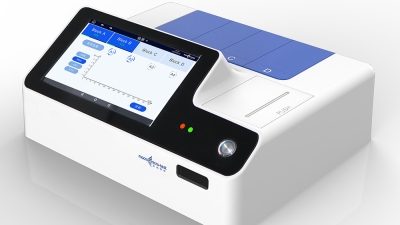Ultimate Guide to Understanding Duo Dengue Ag Igg Igm Rapid Test for Accurate Diagnosis
Table of Contents
- Overview of Duo Dengue Ag IgG IgM Rapid Test
- Key Features and Benefits of the Test
- Understanding the Testing Mechanism: How It Works
- Interpreting Results: Positive, Negative, and Indeterminate
- Common Questions and Misconceptions About Duo Dengue Testing
- Comparative Analysis: Duo Dengue Test vs. Traditional Methods
- Revolutionizing Diagnostics: Insights from Recent Market Reports on the Rise of Rapid Test Molecular Platforms like Easy Amp
- FAQS
- Conclusion
- Related Posts
Dengue fever, which is caused by the dengue virus, is a pretty serious health concern worldwide. The World Health Organization estimates there are roughly 390 million infections each year, leading to more than 500,000 hospitalizations. That’s why quick and accurate diagnosis is so important — it really makes a difference in how patients are treated and helps control outbreaks. One tool making waves in this area is the Duo Dengue Ag IgG IgM Rapid Test. It allows healthcare providers to quickly tell whether someone has an active infection or just had the virus in the past. Speaking of innovation, Jiangsu Macro & Micro-Test Med-Tech Co., Ltd. is really leading the charge here. Founded back in 2010 in Beijing, they focus on developing, manufacturing, and selling advanced diagnostic tools and reagents. Thanks to their own in-house tech and strong manufacturing skills, they’re dedicated to providing reliable solutions that improve patient care and give a boost in the fight against dengue.
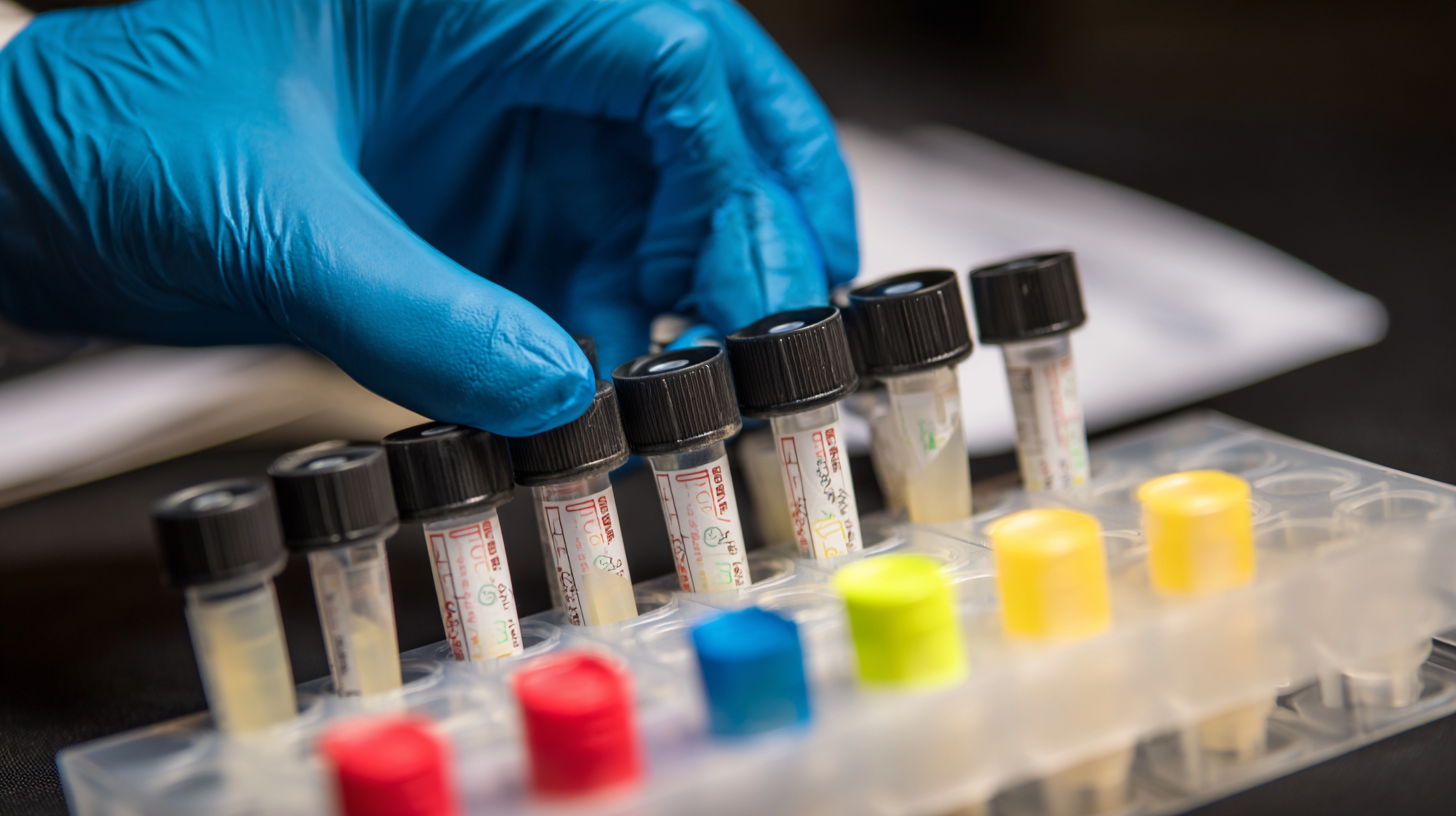
Overview of Duo Dengue Ag IgG IgM Rapid Test
The Duo Dengue Ag IgG IgM Rapid Test is really a game-changer when it comes to diagnosing dengue fever — a disease that’s still a big public health headache around the world. What’s cool about this quick test is that it uses a simple lateral flow method to identify specific antibodies, giving you results in just a few minutes. And because it can tell the difference between IgG and IgM antibodies, doctors can pretty easily figure out if someone’s got a recent infection or if they’ve been exposed in the past. This is super helpful because it means treatments can be better timed and more targeted, which really makes a difference for patients.
On a broader note, recent research has been shedding some light on how immune responses are tied to inflammation and other health issues. For example, in studies involving allergic kids with infectious mononucleosis, higher serum IgE levels were linked to the presence of other antibodies like IgG, IgA, and IgM. It’s pretty fascinating because it shows how complex the immune system really is. That’s why tools like the Duo Dengue Rapid Test are so valuable — they not only help us diagnose dengue more accurately but also give us insights into how the immune system reacts in different diseases. Having this kind of info is crucial for designing better treatments and improving outcomes for patients.
Ultimate Guide to Understanding Duo Dengue Ag IgG IgM Rapid Test for Accurate Diagnosis
| Test Component | Description | Detection Method | Sensitivity | Specificity | Result Time |
|---|---|---|---|---|---|
| Dengue Antigen | Detects presence of dengue virus antigen | Immunochromatography | 85% | 90% | 20 minutes |
| IgM Antibody | Detects early stage IgM antibodies to dengue | Immunoassay | 80% | 92% | 25 minutes |
| IgG Antibody | Detects later stage IgG antibodies to dengue | Immunoassay | 90% | 88% | 30 minutes |
| Overall Accuracy | Percentage of true results | 85% | 89% |
Key Features and Benefits of the Test
The Duo Dengue Ag IgG IgM Rapid Test really stands out when it comes to getting quick and accurate results for dengue fever — a disease that impacts millions around the globe every year. The World Health Organization has pointed out how, over the past few decades, dengue cases have skyrocketed, making it more important than ever to have reliable testing options. This test is pretty impressive because it detects both IgM and IgG antibodies, plus it spots the dengue virus antigen too. Basically, it’s a one-stop shop that can help doctors make faster decisions on treatment.
One of the best things about the Duo Dengue test is how fast you get results — usually within just 15 to 20 minutes. That means healthcare providers can jump on treatment quickly or get a handle on outbreaks without wasting time. Also, there's this study in the Journal of Clinical Virology showing that testing for both the virus antigen and the immune response really boosts accuracy, especially early in the infection. It’s a pretty smart approach that helps improve patient care, making this test a real game-changer in the global fight against dengue fever.
Understanding the Testing Mechanism: How It Works
The Duo Dengue IgG IgM Rapid Test offers a pretty clever way to diagnose dengue fever—you might say it’s a bit of a game-changer. It works by picking up both IgG and IgM antibodies that are specific to the dengue virus, which actually gives you some clues about when the infection happened. For instance, IgM antibodies show up early on, so if they’re present, it usually means you’ve been recently exposed. On the other hand, IgG antibodies stick around longer, indicating you’ve had a past infection. Being able to tell the difference between a new and an old infection is super helpful for doctors trying to manage patient care effectively.
If you’re using this test, a few tips can really help boost its accuracy. Making sure you collect and handle the sample properly is key because that keeps everything reliable. It’s also important to look at the test results alongside what’s going on clinically and maybe other tests — kind of like putting the pieces of a puzzle together. This approach is similar to how we handle big health crises, like the recent global pandemic, where multi-layered strategies and good diagnostics made all the difference. These tools are crucial for quick and accurate disease management.
Now, the dual-target setup of the Duo Dengue test is kind of like other testing methods in different fields, such as in engineering or material science. For example, in shake table tests that study how materials react under stress, understanding the mechanics behind those tests can give us important insights—just like how a proper dengue diagnosis helps shape effective treatment plans. Looking at these comprehensive testing strategies, in a way, helps improve overall health outcomes and makes the whole process more understandable.
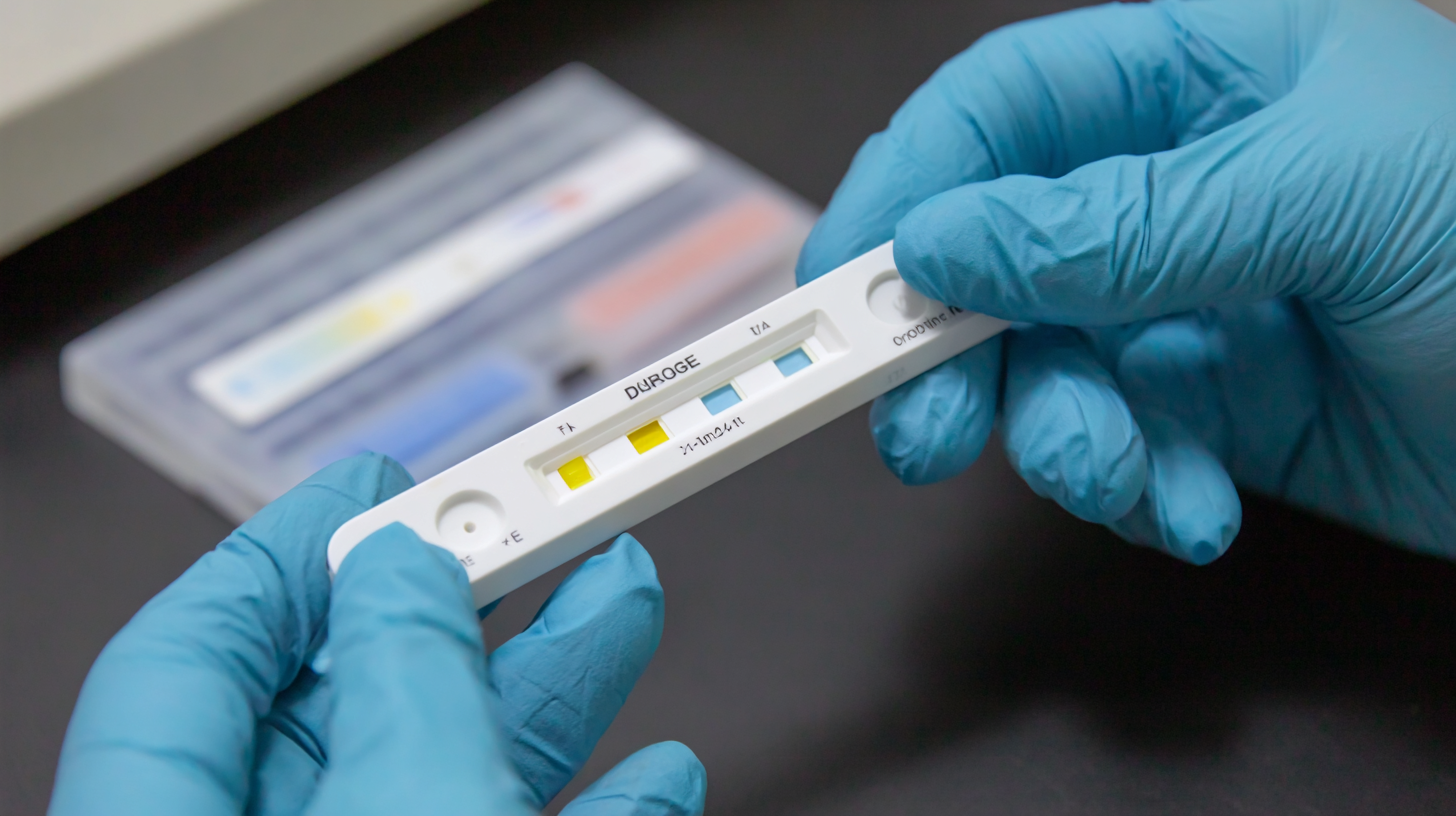
Interpreting Results: Positive, Negative, and Indeterminate
The Dengue Ag IgG IgM rapid test—yeah, that quick little tool—is pretty essential when it comes to managing dengue fever in the clinical setting. It gives you fast results, which can really help in making treatment decisions on the spot. But, here’s the thing: understanding what those test results actually mean is super important if you want an accurate diagnosis. For example, if the IgM test comes back positive, it usually points to a recent infection—like, within the first week of symptoms kicking in. On the other hand, IgG antibodies typically suggest you’ve had dengue in the past. According to the WHO, this rapid test can have a pretty high sensitivity—up to 90%—especially in cases where the infection is acute, so it's generally reliable for quick diagnosis.
That said, sometimes the test can give what we call an indeterminate—or unclear—result, and that’s when you’ve gotta be a little extra careful. A study published in the Journal of Clinical Microbiology pointed out that these ambiguous results can happen because of cross-reactivity with other viruses—like, the test might pick up signals from infections other than dengue—which can lead to confusion or misdiagnosis. So, it’s really important that healthcare providers don’t just rely solely on the test but also take into account the patient's symptoms and clinical picture. Sometimes, if things aren’t clear, they might need to run additional, more definitive tests. Getting the interpretation right isn’t just about managing individual patients well; it also matters for keeping track of dengue outbreaks in the bigger picture of public health.
Common Questions and Misconceptions About Duo Dengue Testing
When it comes to duo dengue testing, especially the rapid Ag IgG IgM tests, a lot of folks have questions—and honestly, some pretty common misconceptions pop up too. A lot of people assume these rapid tests can definitively catch every case of dengue, but that’s not exactly the reality. Studies show that while these tests are pretty good at detecting active dengue infections — especially early on — they’re not foolproof. Their reliability can really vary depending on the strain of the virus and the stage of the illness. For example, a study published in the Journal of Clinical Virology highlights that the accuracy of rapid dengue tests can be all over the place. Sometimes they can give false positives or negatives, especially if you test too early or your immune response is still kicking in.
So, if you want the best shot at getting reliable results from a Duo Dengue test, here are a few things to keep in mind. First off, try to get tested during the acute phase—ideally within the first week after symptoms show up—since that’s when the virus antigens are most likely to be detectable. Also, it’s a smart move to follow up with additional tests like PCR, especially if results are a bit unclear. Staying updated on the latest in dengue testing is a good idea too, because research is always advancing, helping tests become more specific and sensitive.
And here’s another thing that trips a lot of people up: just because a rapid test comes back positive doesn’t mean you’re immune from future dengue infections. The World Health Organization points out that although having dengue once might offer some protection, it can also increase the risk of more severe illness in future infections — thanks to something called antibody-dependent enhancement. So, understanding these nuances really matters, both for how we manage individual cases and for public health strategies.
Understanding Duo Dengue Ag IgG IgM Rapid Test Results
This chart illustrates the distribution of results from the Duo Dengue Ag IgG IgM rapid tests, providing insights into the frequency of various outcomes, including positive and negative results for antigen and antibodies.
Comparative Analysis: Duo Dengue Test vs. Traditional Methods
The Duo Dengue Ag IgG IgM Rapid Test is a pretty big step forward when it comes to diagnosing dengue, especially when you compare it to the older, more traditional methods. You know, stuff like serology tests and viral cultures—those can take forever in the lab, which often means you get your results way later than you'd like. That delay can sometimes really impact how quickly patients get the care they need. Plus, these tests rely a lot on the clinician’s interpretation, so there's always a chance of misreading results or even doing unnecessary treatments just because of those lengthy testing times.
Now, here’s the cool part—this Duo Dengue test gives you quick and pretty dependable results, so doctors can figure out what’s going on much faster. It does something pretty clever by testing for both IgG and IgM antibodies at the same time, along with detecting the dengue antigen itself. That means it can help tell if the person is currently sick or if they’ve had dengue before. Having this kind of detailed info upfront really helps healthcare providers make better, more informed decisions sooner rather than later. And if you think about how serious dengue can get if not caught early—especially with some of the nasty complications—it’s a huge help. Overall, this test not only makes diagnosing dengue more accurate but also speeds things up, making it a popular choice in clinics these days.
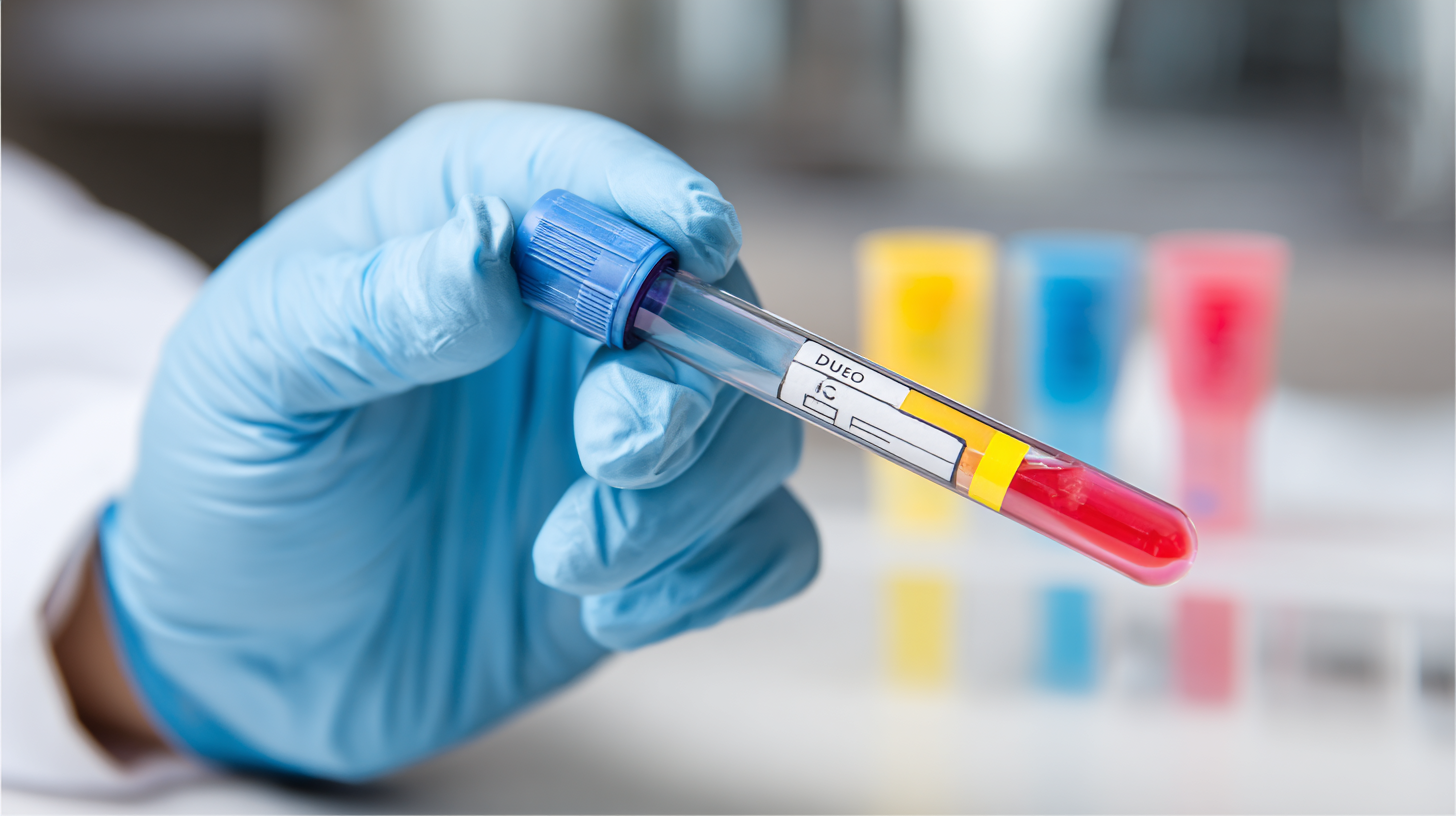
Revolutionizing Diagnostics: Insights from Recent Market Reports on the Rise of Rapid Test Molecular Platforms like Easy Amp
Rapid test molecular platforms are transforming the landscape of diagnostics, providing healthcare professionals with tools that enhance the speed and accuracy of disease detection. The rise of products like Easy Amp exemplifies this shift, enabling constant temperature amplification detection that is crucial for effective result analysis and output. These advancements are not just theoretical; they are practical solutions that pave the way for timely medical responses, particularly vital in emergency situations.
One of the standout features of these innovative platforms is their suitability for rapid reaction detection, which is essential in non-laboratory environments. Whether in remote areas or during outreach programs, the ability to conduct instant tests offers tremendous benefits. Compact and easily portable, these devices empower healthcare providers to deliver immediate results without the constraints of traditional lab settings. This mobility not only enhances patient care but also bridges gaps in accessibility, making diagnostics more inclusive and efficient.
With market reports highlighting the growing demand for rapid testing solutions, it’s clear that molecular platforms like Easy Amp are at the forefront of a diagnostic revolution. As the healthcare landscape continues to evolve, embracing such technologies will be paramount in optimizing patient outcomes and streamlining the diagnostic process. The future of diagnostics is here, and it's rapid, resilient, and ready to respond.
FAQS
g IgG IgM Rapid Test?
Results from the Duo Dengue test can typically be obtained within 15-20 minutes.
The presence of IgM antibodies indicates a recent infection, while IgG antibodies suggest a past infection.
It is important to interpret test results in conjunction with clinical findings to ensure accurate diagnosis and effective patient management, as some results can be indeterminate.
Indeterminate results can arise due to cross-reactivity with other viral infections, which may potentially lead to misdiagnosis.
The sensitivity of the Duo Dengue test can reach up to 90% in acute cases.
The dual-target detection mechanism improves diagnostic sensitivity, leading to faster clinical decisions and better management of patient care.
Tips for maximizing accuracy include ensuring proper sample collection and handling, as well as correlating test results with clinical findings and using additional testing methods when necessary.
The dual-antibody detection mechanism of the Duo Dengue test is similar to comprehensive testing methodologies in other fields that help provide critical insights, enhancing diagnostic understanding and improving health outcomes.
Robust diagnostic tools are crucial for timely and accurate disease management, especially in the context of rapidly spreading illnesses like dengue fever.
Conclusion
The Duo Dengue Ag IgG IgM Rapid Test is genuinely a big step forward when it comes to catching dengue fever early and getting accurate results fast. What makes this test stand out is that it can detect both dengue antigens and antibodies at the same time — giving doctors a better overall picture of where the patient is in their illness. It’s pretty quick, easy to use, and highly sensitive, so it definitely beats the older, more traditional methods in lots of ways.
The whole testing process is designed to be straightforward but doesn’t sacrifice accuracy, which means it’s suitable for all kinds of healthcare settings, whether big hospitals or smaller clinics. Reading the results isn’t complicated either — it helps doctors quickly figure out if someone’s positive, negative, or if the test results aren’t clear-cut. We also like to clear up some common questions and myths about the test, and when you compare it to standard methods, the advantages become pretty obvious. Here at Jiangsu Macro & Micro-Test Med-Tech Co., Ltd., we’re all about coming up with innovative and reliable diagnostic tools to make a real difference in healthcare. We’re proud to contribute to better outcomes for patients worldwide.
Related Posts
-
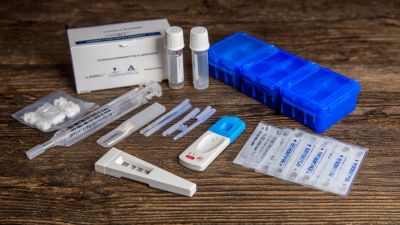
What You Need to Know About Wholesale Hepatitis B Rapid Test Kit Manufacturers
-

5 Unforgettable Reasons to Choose the H1N1 Real Time PCR Kit for Accurate Testing
-
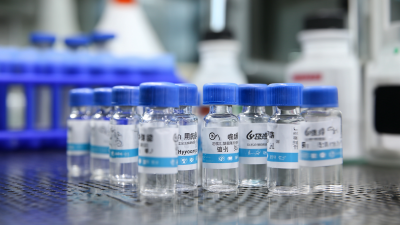
Discover Top-Quality Hpylori Test Solutions from Premier Chinese Manufacturers
-

Future Trends in Gene Cyp2c19 Market Analysis for 2025 and Beyond
-
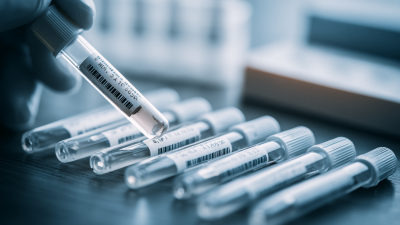
7 Reasons Why Choosing a Wholesale Rapid Diagnostic Test for Dengue Manufacturer Matters
-
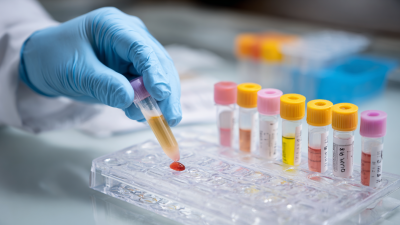
The Future of Rapid Testing Solutions for Malaria Wholesale Suppliers


